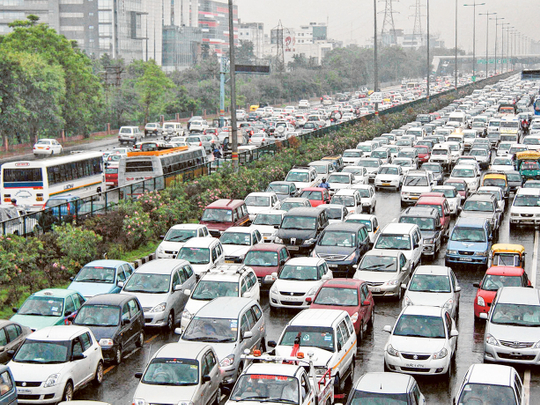
New Delhi: The AAP began its second year in office in Delhi on Sunday, earning more bouquets than brickbats despite a tumultuous period when it was at war both within and with others.
When income tax commissioner-turned-activist-turned-politician Arvind Kejriwal took power on Valentine’s Day last year, there was more of an air of uncertainty coupled with lots of expectations.
While there are plenty of critics, Kejriwal finished his first year in office seemingly with more admirers, primarily due to the odd-even traffic scheme he unleashed from January 1-15 and will repeat from April 15-30.
It was a unique experiment that put only petrol and diesel driven cars with odd registration numbers on roads on odd dates and even registration numbered cars on even dates in a bid to reduce pollution. While it is not clear if the aim was met, the curbs brought great order to Delhi’s otherwise perennially choked roads, making driving a pleasant experience.
“On substantive issues it has been a government with good governance,” Pradeep Kumar Dutta, a professor of political science in Delhi University, told IANS.
“The odd-even scheme was a much needed step, in the right direction.”
Rajesh Jha, also a political science professor at Delhi University, felt the Kejriwal government had “underperformed” but he also called the “odd-even scheme a good and bold decision”.
Kejriwal, undoubtedly the heart and lungs of the Aam Aadmi Party, feels that his government’s major achievements were slashing electricity tariff and providing free water up to a limit, benefiting millions. Both were major election pledges.
“Our government deserves accolades for fulfilling its promises despite the central government’s constant efforts to derail our good governance agenda,” AAP leader Dilip Pandey told IANS.
“We fulfilled our key promise to provide cheap electricity and free water. For the first time in 22 years, electricity rates were not hiked.”
Saying corruption had fallen in Delhi, he said: “We removed our own minister (Asim Ahmad Khan) when we found he was involved in corruption.”
Pandey admitted that not every election promise had been fulfilled, including the provision of free WiFi in the entire city. “We are committed to meeting all our promises. We still have four years.”
Deputy Chief Minister Manish Sisodia told IANS that the AAP government’s focus on revamping the educational and health sectors in the capital which he claimed had derailed over the years were solid achievements.
Analyst Jha admitted that the AAP had “started clean politics as the level of individual corruption is very low in this government. But concrete development is yet to be witnessed”.
Within weeks after taking office, the AAP, born from the anti-corruption movement of Anna Hazare, sacked two of its founder members, Yogendra Yadav and Prashant Bhushan. They promptly called Kejriwal a dictator.
And thanks to the complex power structure in Delhi, the Kejriwal government has also been locked in unceasing conflicts with Prime Minister Narendra Modi’s government.
With Delhi Police not reporting to the Delhi government but to Lt. Governor Najeeb Jung, the central government’s representative, the Kejriwal-Modi row has often taken ugly turns.
Six AAP legislators — or 10 per cent of the 67 members it has in the 70-member Delhi assembly — have been arrested on various charges and let off on bail. Each arrest has ignited more ugly spats.
Lt. Governor Jung has often spiked schemes and transfer of officials announced by Kejriwal, making it clear that it was he — and not Kejriwal — who was the real boss in Delhi.
Analyst Dutta warned that the Delhi government’s frequent fights with the Modi government was affecting development.
With the AAP’s brute majority in the legislature, the three-member Bharatiya Janata Party has failed to mount an effective opposition. The Congress has no presence in the house — for the first time.
On Thursday, AAP ministers unveiled a whole lot of plans they have for Delhi, including a two-level elevated East-West road corridor, a medical insurance scheme for people in Delhi, 1,000 Mohalla Clinics as well as several Polyclinics, and hundreds of classrooms in government schools.
Kejriwal’s friend-turned-foe Yogendra Yadav said that the AAP government was “a shade better” than the earlier Congress regime but its performance was “modest” keeping in mind the promises it made.
BJP spokesman Praveen Shanker Kapoor added: “One year of Kejriwal government had been a year of complete failure of governance. They made a mockery of administration.”
Not everyone agrees.
Astha Choudhary, a resident of upscale Vasant Vihar in south Delhi, told IANS that her electricity bill had halved thanks to Kejriwal. “This is the biggest achievement of his government.”
Added Arpit Bansal, who works in a multinational and resides in west Delhi: “Kejriwal is delivering his poll promises. The odd-even plan shows he is serious in fighting pollution.”












